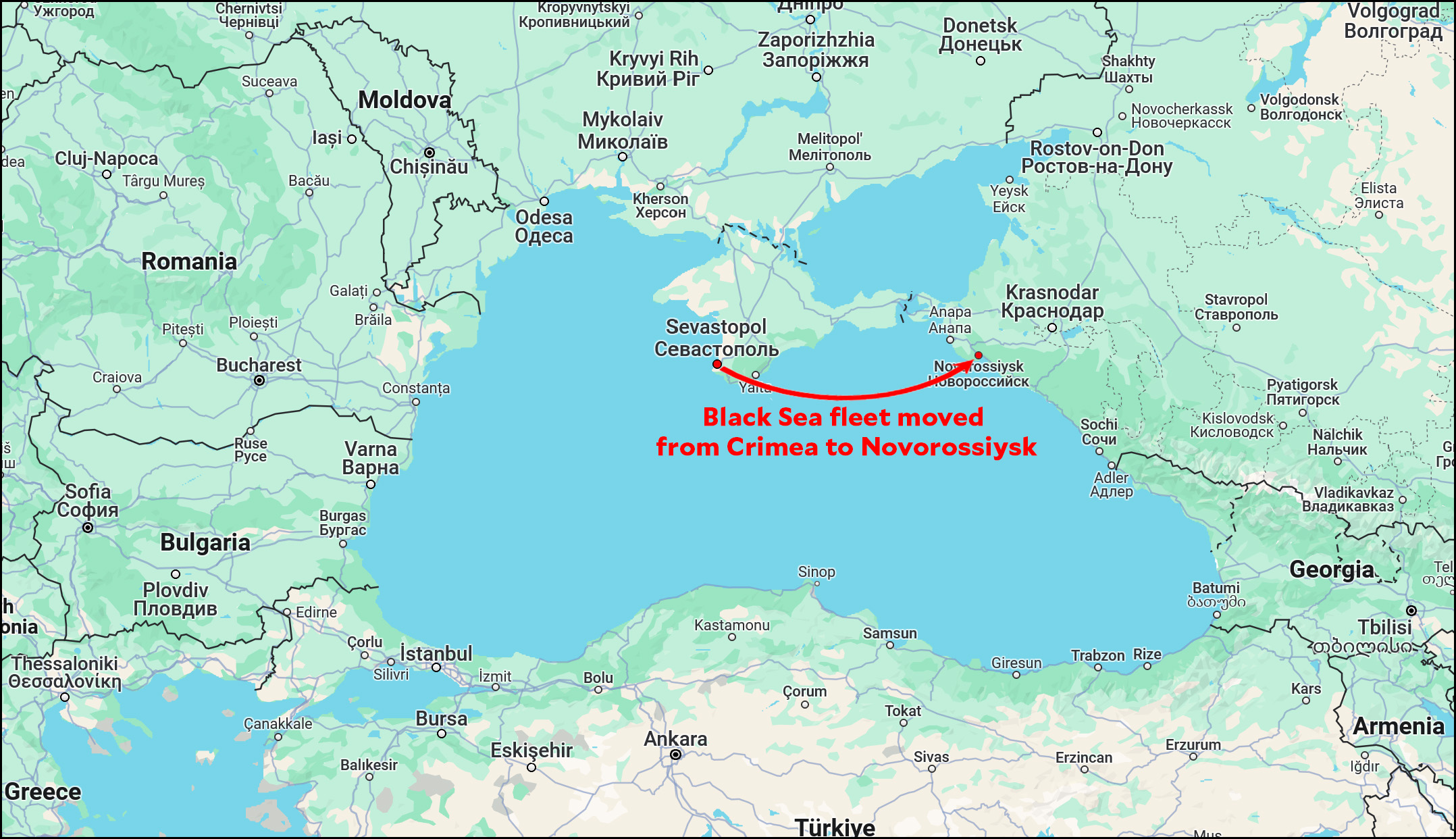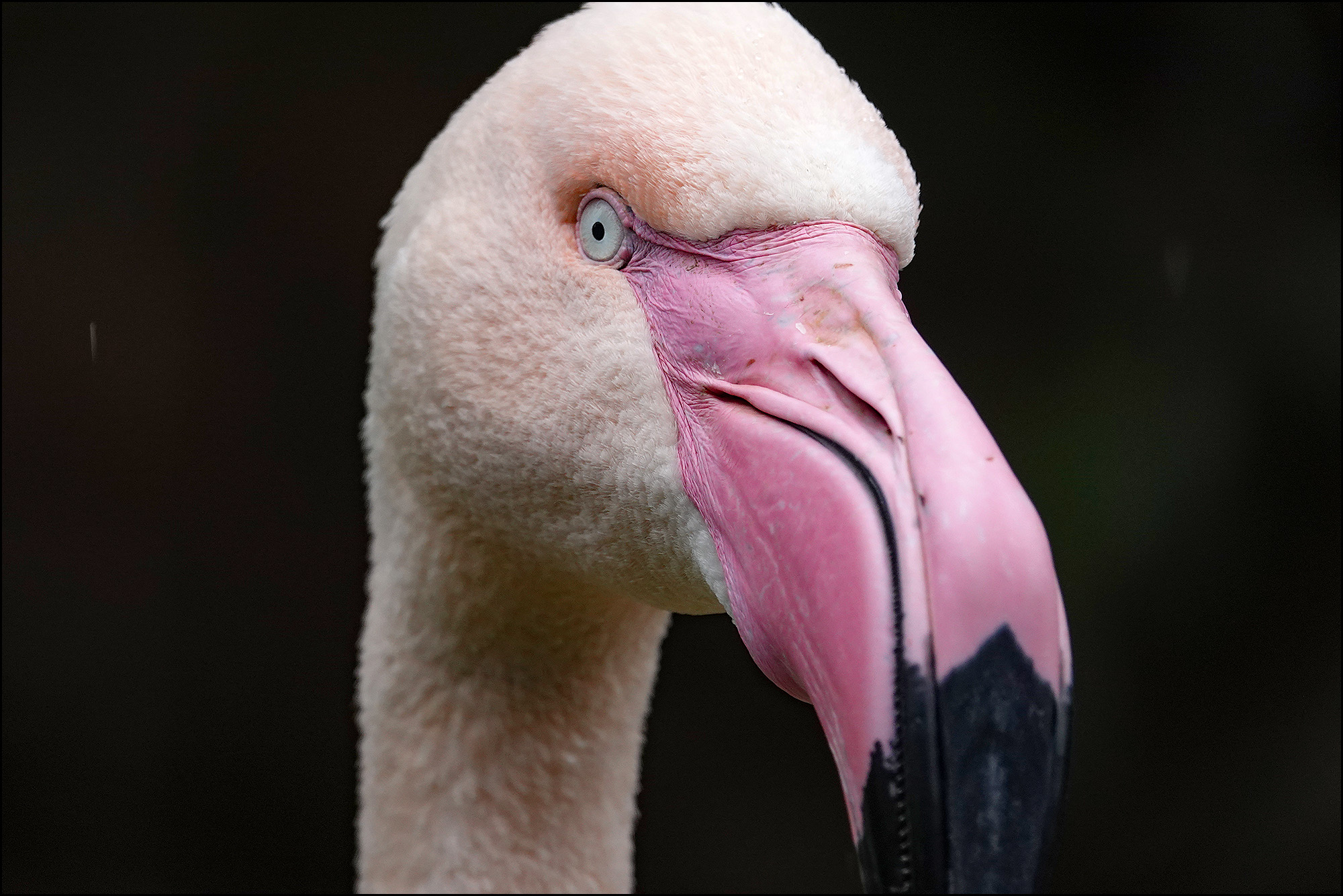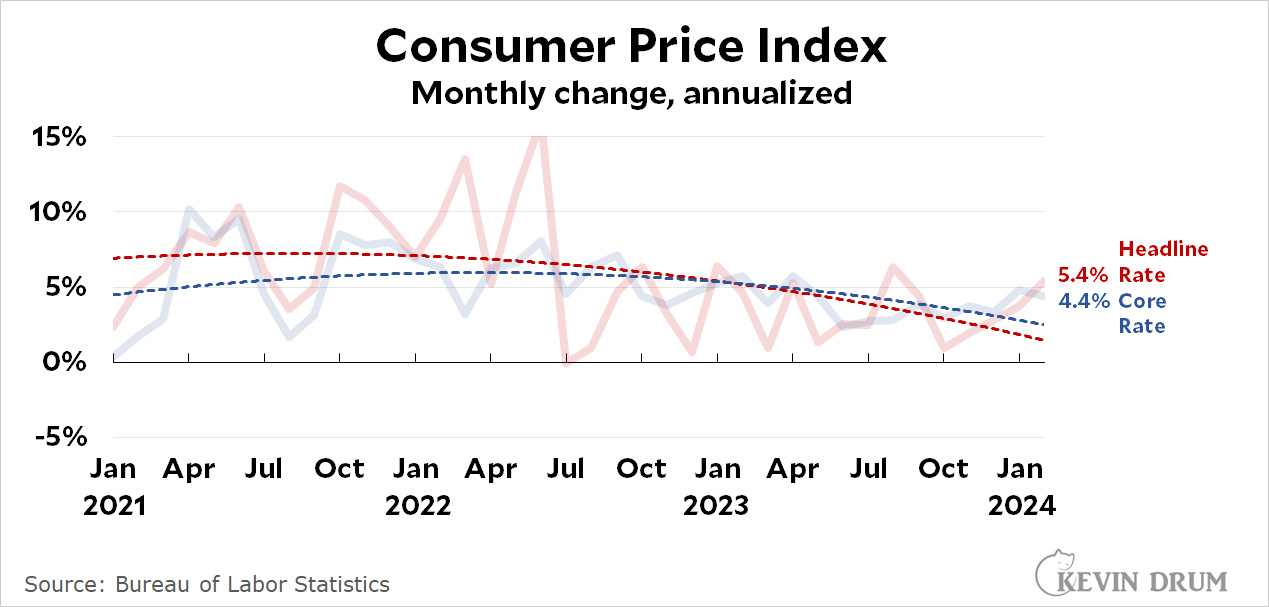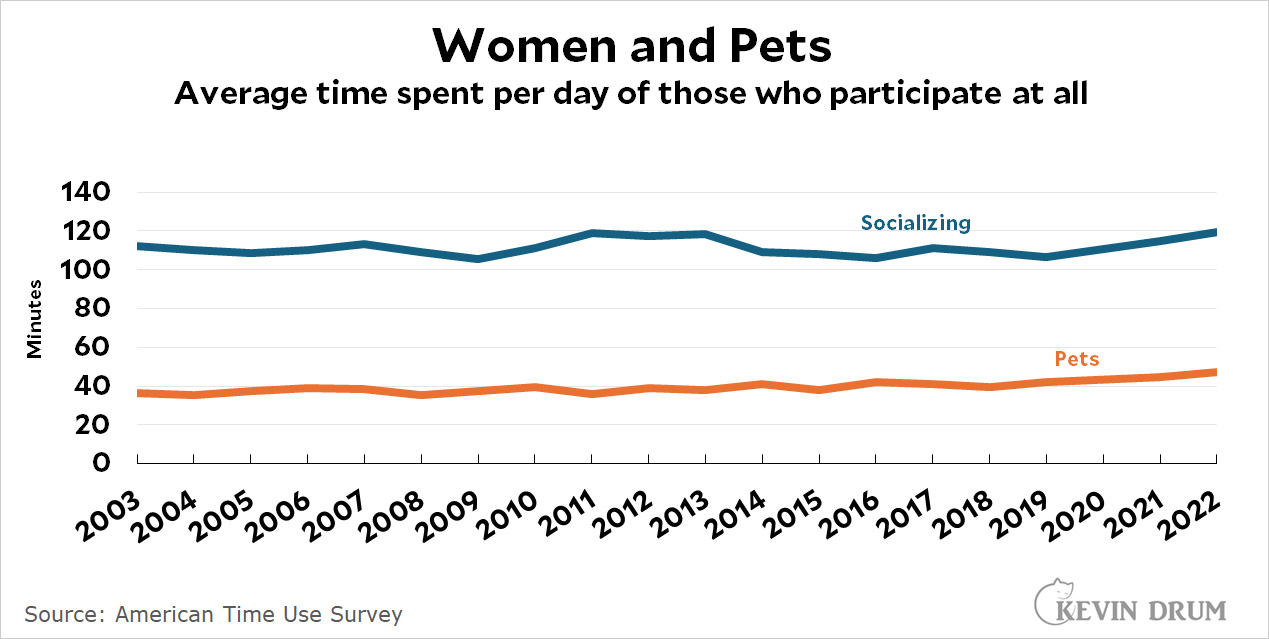Hum de hum. A couple of reasonable folks have recently weighed in on the question of whether TikTok should be banned in the US. The first is from Noah Smith, who says it should be and points to two pieces of concrete evidence: (1) a study showed that TikTok suppresses videos China doesn't like, and (2) TikTok's official moderation policy is to censor content China doesn't like.
This is pretty weak tea. The suppression study is badly flawed because it doesn't compare TikTok to other social networks in the same years. The moderation story acknowledges that TikTok's policies are not directly aimed at anything specific to China and, in any case, are no longer in use. What's more, TikTok has a longtime goal of minimizing political content entirely because they think it's bad for business.
So there's very little there. Noah also addresses the issue of TikTok surveillance, but again, there's virtually no evidence of anything significant. Nor could there be. TikTok currently keeps all data on American users in Texas, where it's unavailable to Chinese authorities.
Matt Yglesias takes a different approach. He says China is bad and we shouldn't really require tons of evidence about this:
Here’s the analogy I like to use. It’s 1975 and a state-owned Soviet firm wants to buy CBS. What happens? Well, what happens is they wouldn’t be allowed to.... There would be no detailed factual analysis or demand for gold standard evidence that a Soviet-owned television statement might do Moscow’s bidding or that television is capable of influencing public opinion. We’d reject the idea out of hand. And rightly so, because the downsides would be very clear, and the upside minimal.
....We don’t need to wait for open and shut evidence that the platform is being censored or used to deliberately promote propaganda. We should just have a very strong presumption that it will be used in the way and act accordingly.
This gets dicey very fast. If no evidence is required, it's a little hard to argue the other side, isn't it? Just for a bit, then, let's look at some evidence.
First, about 20% of adults watched Walter Cronkite back in the day. Today, about 5% of adults get news from TikTok—most of it nonpolitical. There's really no comparison.¹
Nor is anyone suggesting that we allow China to buy an American news platform. The question is only whether Chinese platforms should be allowed to distribute content in the US. In broad terms this is an issue unique to the internet era, but it's still worth pointing out that the Soviet Union was allowed to distribute news during the Cold War. TASS had several bureaus in the US and Soviet propagandists famously visited the US frequently to provide "their side of the story" to American teens.
Don't get me wrong: there's obviously not much comparison between a huge Chinese social network today and a rarely-used Soviet wire service fifty years ago. At the same time, how much comparison is there between the Soviet Union of the Cold War era and the China of today? China is plainly an authoritarian country that brutally censors content internally and plays hardball against its critics outside the country. But we trade with China; we allow lots of Chinese students in our universities; there's extensive two-way tourism with China; and China is not generally an expansionary military threat.²
As near as I can tell, the threat of China using TikTok to surveil American teens is close to zero. User data on Americans is held on American territory and there's not really much that China could do with it anyway.
On the propaganda side the evidence of a threat is nearly as meager. TikTok probably does try to avoid pissing off the CCP, but its actual level of suppression or censorship seems to be pretty limited and pretty low. What's more, TikTok is just one small part of a massive modern infotainment industry, not one of three monopolistic TV networks like we had in the '60s.
So I'm still stuck in the same place. I really, really try not to get caught up in moral panics, which have a pretty appalling track record. TikTok strikes me as an almost dictionary example of a moral panic that we'll look back on in ten years and wonder what the hell we were thinking. On the threat of China more generally, I don't like the Chinese government much but I'm not panicked either. They're a geopolitical bad actor but not an existential threat. For now, anyway, I don't feel the need to ban a social network just because it's Chinese owned.
¹The number is obviously higher for teens, probably around 20% or so. But again, it's mostly nonpolitical news consumption.
²It's a military threat, but mostly in places on its border that it's claimed for a long time: Taiwan, Tibet, the South China Sea, and a couple of smallish territories that it disputes with India.







